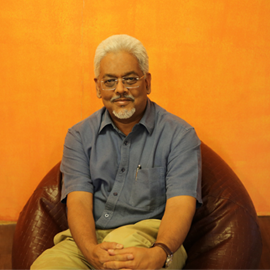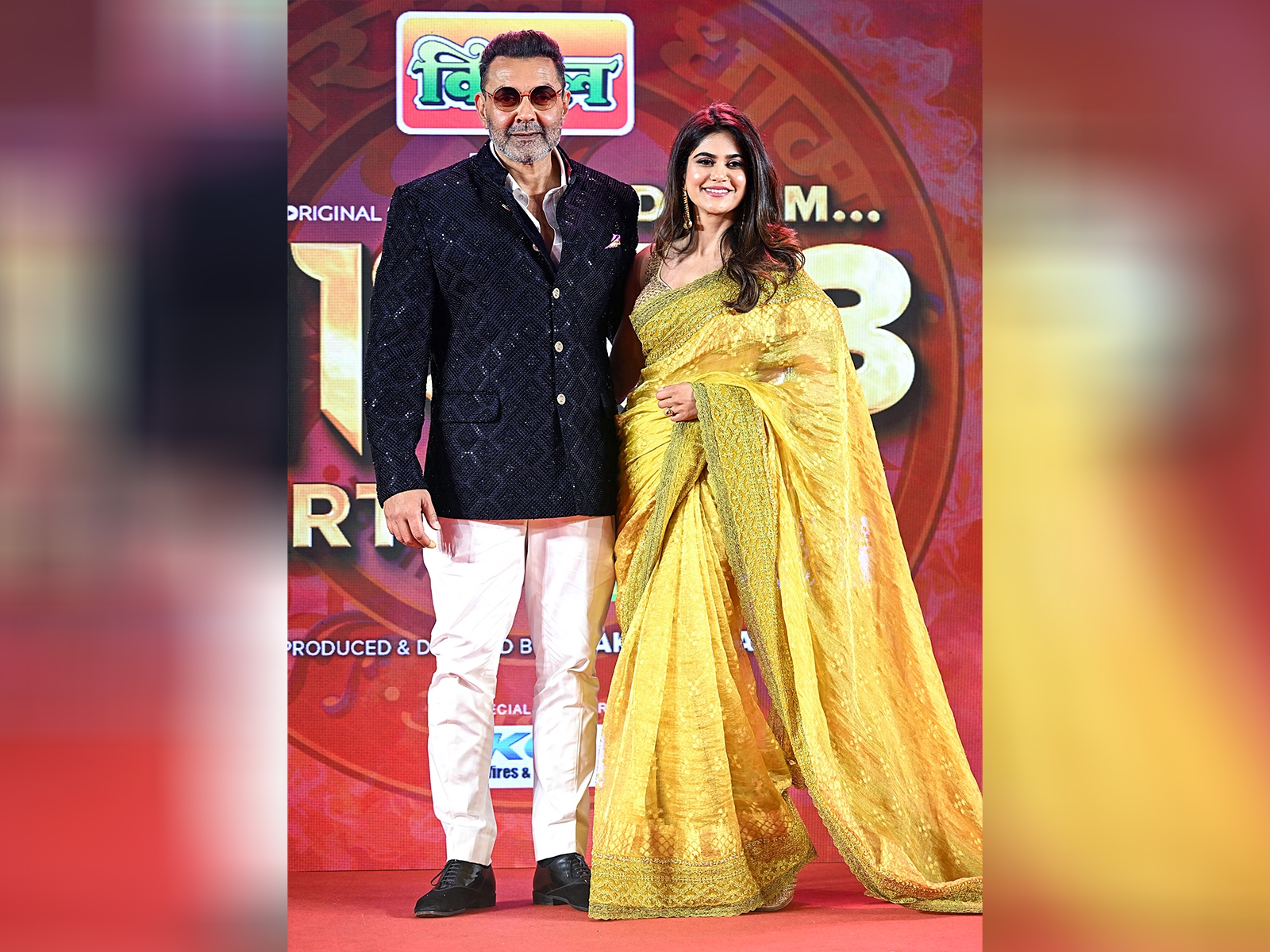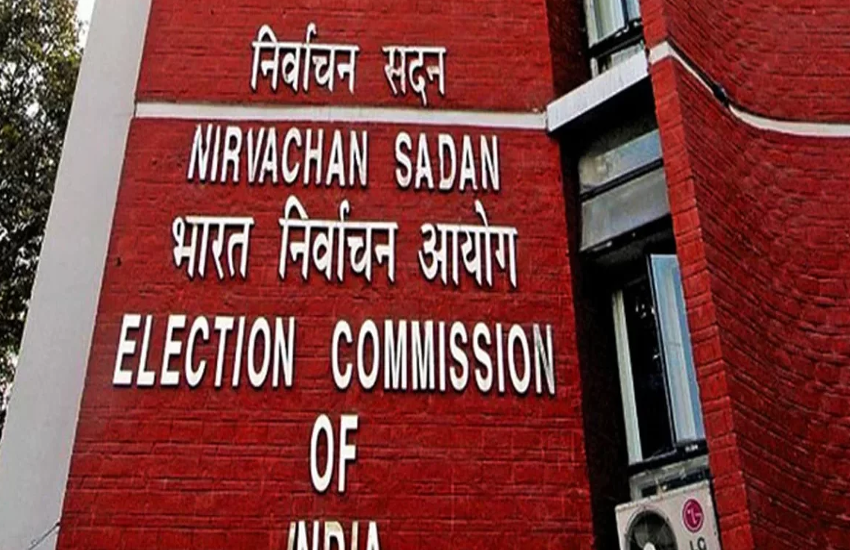Jungle diary: Naga rebels celebrate their 'last Independence Day'

The celebration
- Naga rebels declared their independence on 14 August 1947, a day before India
- Since then, they have unfurled their \'national flag\' every year
- This time, the Nagas acknowledge this could be their last such celebration
The agreement
- Naga rebels, led by the NSCN (IM), have signed a \'framework agreement\' for peace with India
- \'Prime Minister\' T Muivah discussed this agreement with Naga civil society
- He praised the Indian leadership for keeping the peace process going
- The buzz on the ground is overwhelmingly in favour of lasting peace with India
If an 18-year-long negotiation with the Government of India bears fruit, this could be the last Independence Day that Naga insurgents celebrate.
Unfurling the 'national flag'
In oppressive humid heat, over 5,000 Nagas waited for the unfurling of their 'national flag'; a sky-blue flag crossed by a rainbow and the Star of David in the upper right hand corner.
The flag of the underground Government of the Peoples' Republic of Nagaland has been unfurled every 14 August by Naga rebels. This was the day in 1947 when they had declared independence - a day before India.
This year, too, the flag was unfurled by the rebel-in-chief, 'Prime Minister' Thuingaleng Muivah, in a ceremony attended by Nagas from Nagaland, Manipur, Assam, Arunachal Pradesh and Myanmar.
There were delegates from various tribes, civil society organisations and smartly dressed soldiers of the National Socialist Council of Nagaland (Isak-Muivah).
The ceremony was held inside Camp Hebron - a rebel military camp in a jungle, 45 kilometres outside Dimapur.
Camp Hebron was set up with the permission of New Delhi about 15 years ago, after the NSCN (IM) entered into a cease-fire with India. What began as a patchwork of thatched huts in a jungle clearing is now a bustling concrete settlement, with armed Naga Army men and women going about their business.
Security apprehensions
There were no regrets among the rebels, even though they knew the underground army will be decommissioned. They would all face an uncertain future in a competitive democracy.
"Of course, this is the last Independence Day," said a young 'Lt-Col' of the Naga Army.
However, there was apprehension that some elements might disturb the ongoing peace process between the NSCN (IM) and the Government of India.
Within Nagaland, there are other insurgent groups and politicians who fear that peace might marginalise them when a new dispensation begins to take shape.
Naga rebel 'PM' Muivah unfurled the 'national flag' and discussed the framework for peace he signed with India
"Nagas are very happy with the framework agreement reached with the Government of India. But remember, the hour of freedom is also the darkest hour for the anti-nationals," Reverend Seksim Kasar, general secretary of the Council of Naga Churches, remarked.
"Did they not kill Mahatma Gandhi after he secured independence for India? Was Sheikh Mujibur Rehman not killed similarly? Why, even Abraham Lincoln was shot after he abolished slavery. So there may be some elements among the Nagas who might create problems."
The NSCN (IM) was clearly taking no chances on this historic day.
Only invited delegates were allowed into the heavily fortified military camp. Within the camp, 'Naga Army' soldiers with automatic weapons and walkie-talkies kept a constant lookout.
A bullet-proof glass lectern had been flown in from Delhi for Muivah to address the gathering. And Muivah himself was advised to wear a bullet-proof vest.
Framework agreement
This was Muivah's first opportunity to discuss and solicit public support for the framework agreement signed by the Naga rebels with the Government of India. The document, signed in the presence of the Indian Prime Minister, is set to bring almost seven decades of Naga insurgency to an end.
With the details of the framework agreement being kept secret by the negotiators, speculation is rife about its contents.
The general secretary of the NSCN (IM) recounted the historic journey of their struggle to find their political destiny. He drew parallels between events in the Bible and the choices that Nagas have had to make.
Without disclosing the contents of the framework agreement, he made four essential points.
1. He argued that the Indian leadership had recognised the 'unique history and situation of Nagas' and this was what had propelled the peace negotiations forward.
2. Since 'uniqueness' meant recognising that Nagas had not become a part of India either by conquest or consent, Muivah argued there was a need to find a unique solution to determine their political status. This too had been accepted by the Indian negotiators, he said.
3. Muivah said the world had changed and, in modern democracies, sovereignty lay with the people. Recognising this, the Government of India and the NSCN (IM) had agreed to "respect peoples' wishes to share sovereign power as defined in the competencies".
This meant that Nagas would become a part of India by negotiating the subjects/competencies to be controlled by the Centre, by the State and by the two jointly.
4. Finally, he said the two sides had agreed to work towards "peaceful co-existence" by hammering out a mutually acceptable, honourable and enduring solution to the Naga issue.
The second speech
In a highly unusual move, Muivah spoke a second time during the event, to clarify two issues of deep concern to Nagas - sovereignty and the integration of Naga areas. He claimed that Nagas had not given up on either of the two issues.
Sovereign power will be shared with India in a spirit of co-existence, he said, and integration will remain on the table even if the Indian government finds it difficult to accept it at present. He warned Nagas against "some elements who are manipulating the situation in a treacherous manner".
Given the Naga demand for integrating all contiguous Naga-inhabited areas, the states bordering Nagaland are apprehensive of state boundaries being redrawn.
To allay their fears, Muivah held out an olive branch, saying: "We are ready and prepared to understand our neighbours in the best way we can. We will respect the rights of our neighbours, but they must also recognise the rights of Nagas."
Muivah also warned Naga opinion makers that their society needed to take the right decision at the right time. If Nagas failed to do this, their struggle would be wasted; they "would lose the world".
Praise for Indian leaders
Muivah, who spoke extempore, gave credit to those who had led Naga struggle for sovereignty before him, as well as the Indian political leadership.
He lauded Indian leaders for the realisation, after 25 years of fighting Naga rebels, that the Naga issue required a political and not a military solution.
"When they respect our rights, let us also appreciate them. Let us come closer to them. That is the only way to find a solution," he urged.
Just as the Pharaoh's heart was changed by "the great Jehovah", he said Nagas had successfully transformed the understanding of the Indian leaders about their issues.
"It is high time we started appreciating the Indian leadership - especially people like Prime Minister Atal Bihari Vajapyee - who recognised the uniqueness of Naga history and situation," Muivah said.
Sovereign power will be shared with India in a spirit of co-existence, Muivah said
He did not falter in the praise he lavished on successive Indian PMs, from PV Narasimha Rao, HD Deve Gowda, IK Gujral and Manmohan Singh to Narendra Modi, for taking the Naga peace talks forward.
He emphasised that "sharing and co-existence" should be the basic principle to reach a final agreement between the Nagas and India.
Muivah urged the Nagas to look forward with hope. "Let the past be past. God has given something wonderful to the Nagas. Let us move forward with it."
Support for enduring solution
The heart of the ageing insurgent leader must have been gladdened when he found support for a peaceful and enduring solution across Naga civil society organisations.
Delegates ranging from the supreme tribal body, the Naga Ho Ho, the Eastern Naga Peoples' Organisation, the United Naga Council of Manipur, the Zeliangrong Baudi North Cachar Hills, Arunachal Naga Students Association and the Gaon Budas' (village elders) Federation to Eastern Naga Students' Association from Burma - all supported the framework agreement he had signed in New Delhi.
Neither the Naga leadership nor the Indian negotiators can afford to waste this sentiment for peace.
First published: 15 August 2015, 12:53 IST





![BJP's Kapil Mishra recreates Shankar Mahadevan’s ‘Breathless’ song to highlight Delhi pollution [WATCH] BJP's Kapil Mishra recreates Shankar Mahadevan’s ‘Breathless’ song to highlight Delhi pollution [WATCH]](https://images.catchnews.com/upload/2022/11/03/kapil-mishra_240884_300x172.png)

![Anupam Kher shares pictures of his toned body on 67th birthday [MUST SEE] Anupam Kher shares pictures of his toned body on 67th birthday [MUST SEE]](https://images.catchnews.com/upload/2022/03/07/Anupam_kher_231145_300x172.jpg)






